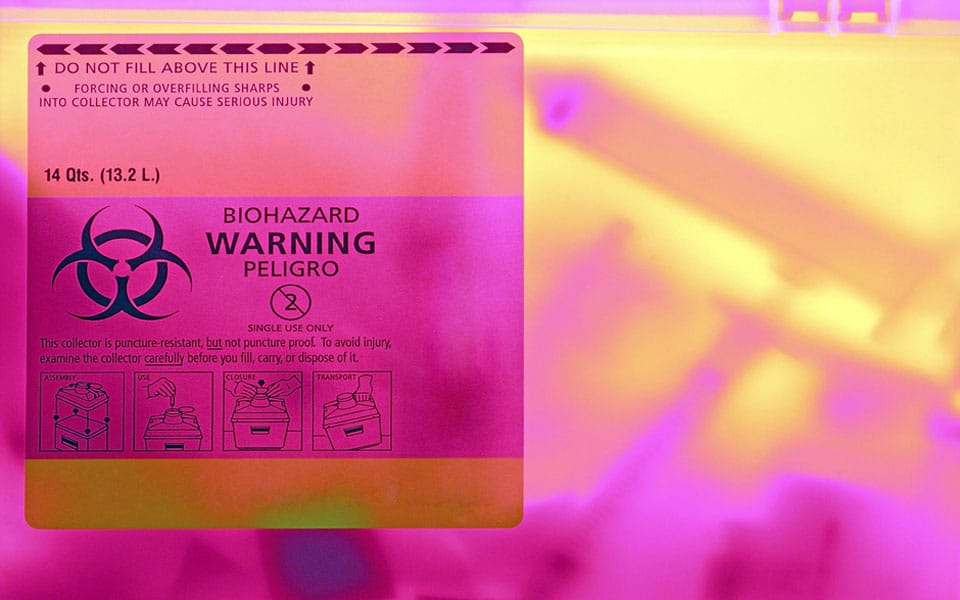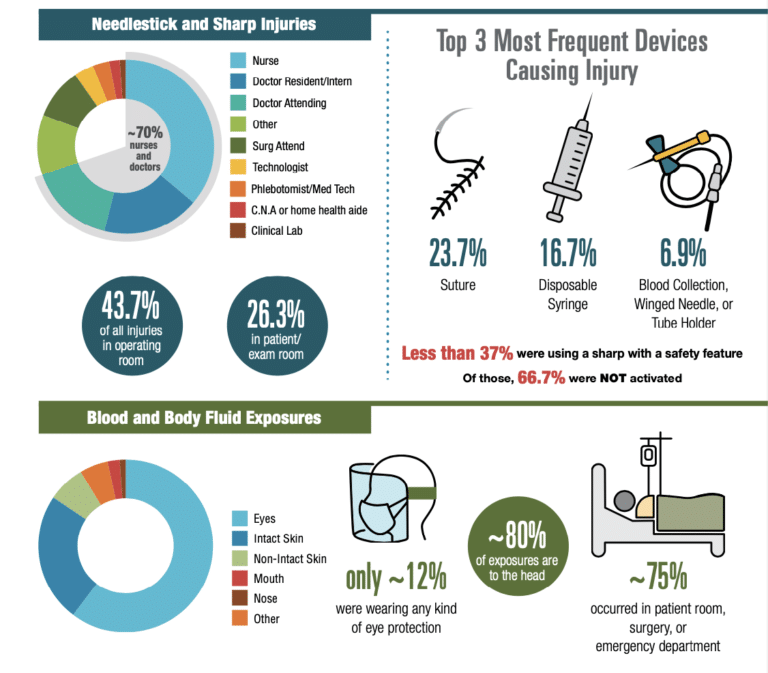
About EPINet
Committed to improving occupational safety in healthcare by minimizing exposure to blood and body fluids.
About EPINet

The Exposure Prevention Information Network surveillance system (EPINet) was originally created by the International Safety Center to create a standardized system that gives healthcare facilities the tools to track occupational Sharp Object Injuries (SOI) & Blood and Body Fluid (BBF) incidents, prevent occupational injuries and illnesses, reduce exposures to microorganisms that cause infectious disease, illness, and infection; and reduce costs and improve quality of care.
In June 2025, EPINet was consolidated under the oversight of AOEC.
EPINet Sharps Injury and Blood and Body Fluid Data Reports
Since 1992, hospitals have submitted data on occupational exposures to blood and body fluids.
This group, known as the U.S. EPINet Sharps Injury and Blood and Body Fluid Exposure Surveillance Research Group (or EPINet Research Group), originally included three distinct groups of healthcare facilities:
- Hospitals in the eastern half of the United States
- Hospitals in South Carolina that are members of Palmetto Hospital Trust Services (PHTS)
- Hospitals in the Pacific Northwest that are affiliated with the Providence Health System
Sharps injury and blood and body fluid exposure data from these healthcare facilities is collected on an annual basis, merged into an aggregate database, and analyzed using EPINet reporting software. Although participating hospitals vary in size, geographic location, and teaching status, the exposure patterns are surprisingly similar. This suggests a high degree of standardization among medical devices and procedures.
All hospitals in the EPINet network participate on a voluntary basis. We are grateful for their contribution of staff time and energy, as well as the exposure data that is the foundation of the Center’s healthcare worker safety research.

If you would like more information about the facilities contributing to the EPINet Research Group, please contact Ginger Parker at:
p. 434-962-3470
e. gparker@aoec.org